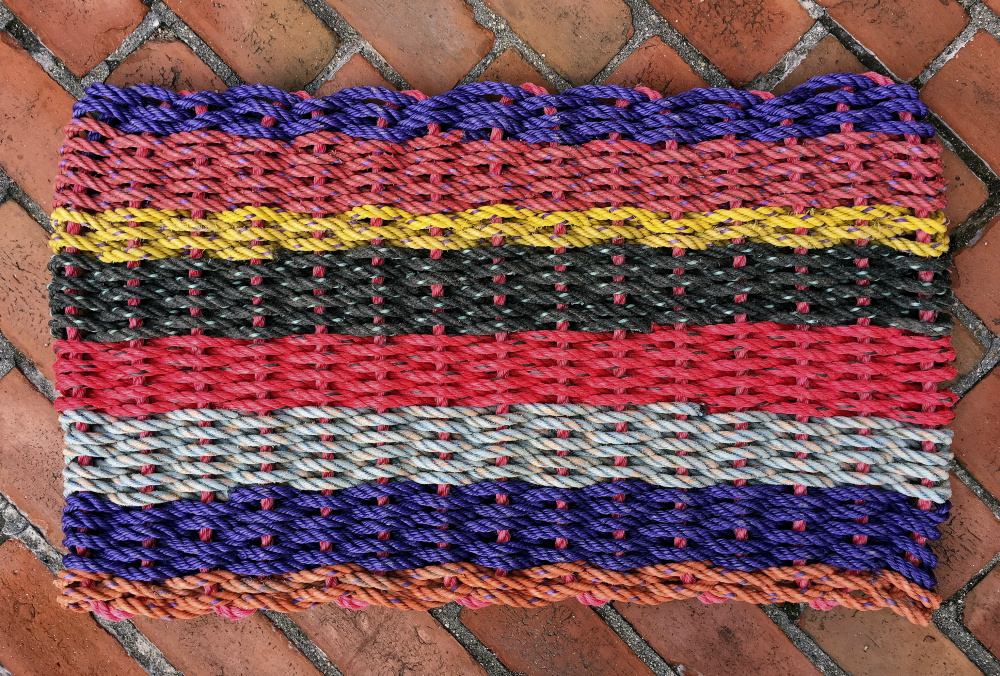If you’re a retired fisherman, David Carter of Custom Cordage in Waldoboro wants to buy your old float rope. He and a cottage industry network of employees, mostly stay-at-home moms, have already turned hundreds of thousands of pounds of the rope into doormats so the rope doesn’t end up in the trash.
Lobster rope doormats can be found on lots of websites and in gift shops these days, but Custom Cordage started the craze back in 2009, when the rope that connected lobster traps on the ocean floor was banned by the federal government over concerns that endangered right whales were getting entangled in it. Fishermen turned in tons, literally, of old rope, but that created another environmental problem – what to do with it? David Bird, owner of Custom Cordage, and Carter, who manages the business, started recycling the old rope into doormats and baskets, and gained national attention in magazines and on TV shows such as The Today Show.
“I blew through my 550,000 pounds of rope in a couple of years,” Carter said. “It went much quicker than we thought. I tried my hardest to collect more and more rope, but there’s probably 15 doormat companies in Maine right now.”
Today the company sells mostly mats made out of new rope – blue and green are the most popular colors – but Carter still salvages enough old rope to sell a few thousand recycled mats every year. A typical retired fisherman can provide 10,000 pounds of lobster rope that can be turned into a couple of thousand doormats, Carter said. The mats are mold and mildew resistant.
“They’re very functional,” Carter said. “I have one that’s anywhere between 20 and 25 years old. We offer a three-year manufacturer’s warranty, but we expect them to last much, much longer.”
Both new and recycled lobster mats can be purchased online for $49.95 at the New England Trading Co. L.L. Bean sells the new mats for $49.
Send questions/comments to the editors.




Comments are no longer available on this story